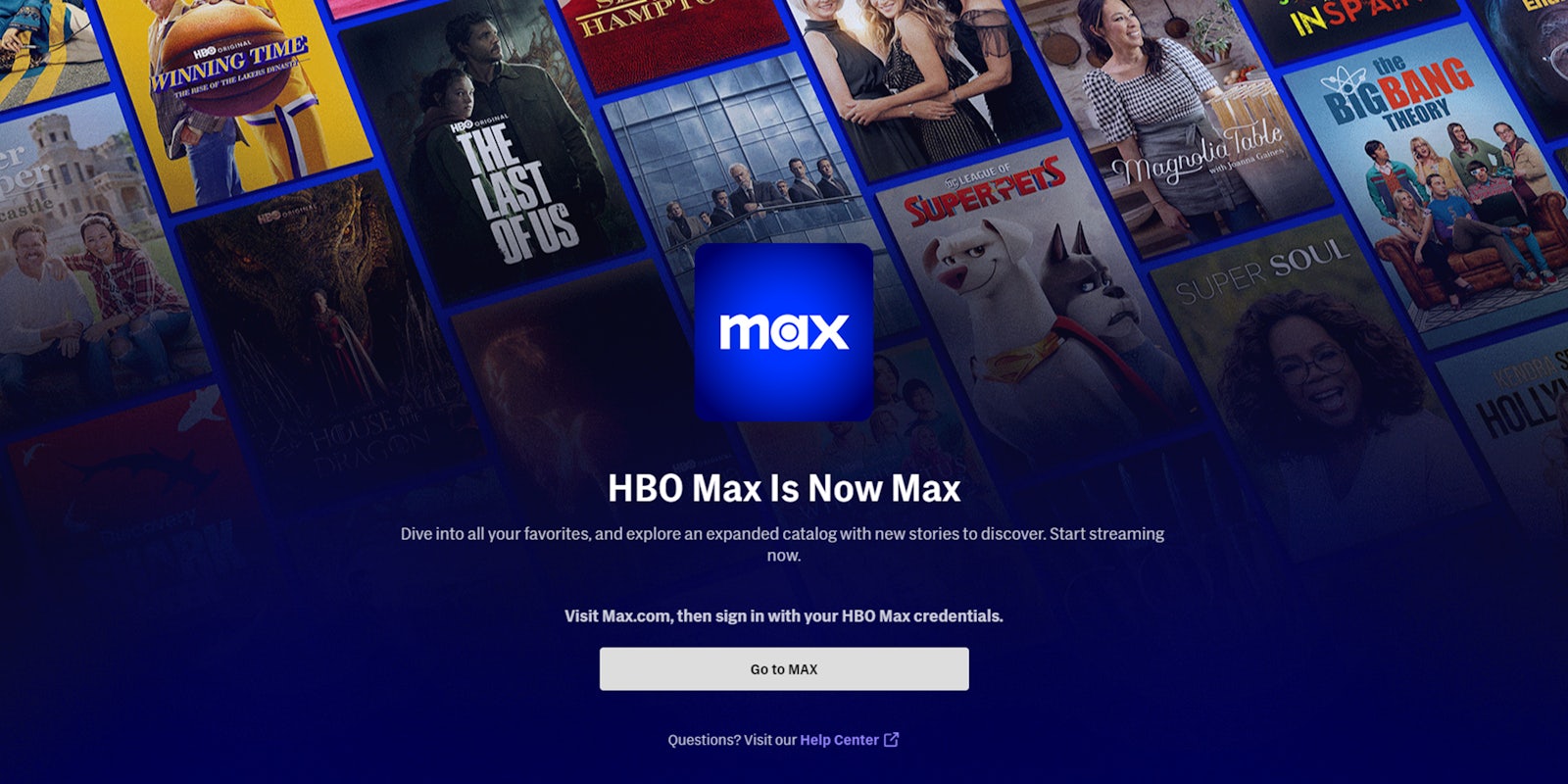When controversial Warner Bros. Discovery CEO David Zaslav announced plans to rebrand HBO Max as simply “Max”—a name with zero brand recognition—TV insiders were baffled. This sounded like an inexplicable act of self-sabotage, weakening a brand that’s synonymous with iconic prestige TV.
In addition to being harder to Google (what is Max, anyway!?), the HBO-to-Max transition involved combining HBO Max’s streaming library with Discovery+’s reality TV content, launching a new platform that lists stuff like Deadliest Catch and Naked and Afraid alongside Succession and Euphoria. Zaslav envisioned this as a direct competitor to Netflix, but detractors argued it would just confuse subscribers and make it harder to find popular HBO content.
Well, the relaunch went ahead on Tuesday, and the reactions are far from positive. Previously, Max only faced backlash from industry insiders and the kind of media fanatics who pay attention to studio mergers. Now it’s hit the mainstream, the rebrand is being mocked left and right.
As many people have pointed out, the absurdity of this rebrand is encapsulated by Max’s own tagline: “Max: The one to watch for HBO.” Inspiring comparisons to Succession‘s intentionally terrible in-universe corporate slogan “We here for you,” this subtitle openly acknowledges that customers want to watch HBO, not “Max.”
Meanwhile, Max’s HBO/Warner Bros./Discovery+ blended streaming library is attracting derisive comments due to the suddenly overwhelming volume of trashy reality TV. This just isn’t what audiences expect from an HBO-branded app.
As for the platform itself, it’s normal for new apps to experience technical issues on launch day. (And yes, Max subscribers are definitely reporting some problems like being unable to log in.) That being said, one element of the HBO-to-Max transition is receiving a lot of pushback: The fact that many users had to manually download a brand-new app instead of just receiving an automatic update.
Given that this is unfolding in the midst of the writers’ strike, the HBO/Max situation is attracting particular attention from TV and film professionals.
David Zaslav is already an unpopular figure, gaining a reputation for revaluing creative work due to his swathe of cost-cutting measures including removing entire shows and movies from streaming. (The surprise cancellation of the fully-filmed Batgirl movie also took place under his tenure, mothballing years of work for the film’s cast and crew.)
There’s a widespread concern that Zaslav has no real interest in film and TV as an art form, motivated instead by a desire to squeeze as much money as possible out of Warner Bros.—even if it involves destroying a century-old Hollywood brand. So while he probably wasn’t involved in the minutiae of Max’s platform interface, it seemed very on-brand for Max to mess up the credits process for writers and directors:
As Doctor Strange director Scott Derrickson and others have pointed out, Max lumps all of its non-actor credits into a section titled “creators,” conflating writers, directors, and producers. So when you look up Raging Bull, the credits place Peter Savage (one of the original nonfiction book’s three authors) ahead of Martin Scorsese, the film’s director.
It’s a nonsensical and uninformative way to list a film’s creative team, signaling a lack of understanding of the fact that Max’s “content” is art created by human beings with specific jobs.
So far, the reactions to the Max relaunch are entirely predictable. Nobody really wanted this product, and subscribers appear to be either confused or annoyed. Right now, the most predictable outcomes are either the demise of the HBO brand as we know it… or a new Warner Bros./Discovery administration reversing the rebrand sometime in the future, returning to the title people actually recognize and care about: HBO.
Update May 25, 9am CT: Following outcry from the film industry—in particular, the directors and writers’ guilds—Max will change its credits formatting to replace the controversial “creator” category. In an email to the Daily Dot, a Max spokesperson wrote, “We agree that the talent behind the content on Max deserve their work to be properly recognized. We will correct the credits, which were altered due to an oversight in the technical transition from HBO Max to Max and we apologize for this mistake.”



 Menaker (@willmenaker)
Menaker (@willmenaker) 